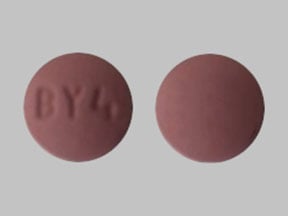
Primaquine Coupons & Savings Card – Discount Prices from $24.52
My prescription
Edit
26.3 (15 Base)MG, Primaquine (28 Tablets)
Select pharmacy

CVS
$70.65
COUPON PRICE
Walgreens
$24.52
COUPON PRICE
Walmart
$35.31
COUPON PRICE
Albertsons
$52.30
COUPON PRICEPrimaquine savings card
Show this card to your pharmacist
Walgreens
$24.52
BIN
ID
PCN
GRP
011867
LHBB343336
HT
LABH001
Powered by
Related antimalarials prescriptions
More prescriptions for malaria
Related antimalarials prescriptions
More prescriptions for malaria
Primaquine dosage forms
Dosage Quantity Price from Per unit 26.3 (15 Base)MG 28 Tablets $35.31 $1.26 26.3 (15 Base)MG 14 Tablets $15.16 $1.08 26.3 (15 Base)MG 100 Tablets $138.93 $1.39 26.3 (15 Base)MG 300 Tablets $426.77 $1.42 26.3 (15 Base)MG 500 Tablets $714.61 $1.43
| Dosage | Quantity | Price from | Per unit |
|---|---|---|---|
| 26.3 (15 Base)MG | 28 Tablets | $35.31 | $1.26 |
| 26.3 (15 Base)MG | 14 Tablets | $15.16 | $1.08 |
| 26.3 (15 Base)MG | 100 Tablets | $138.93 | $1.39 |
| 26.3 (15 Base)MG | 300 Tablets | $426.77 | $1.42 |
| 26.3 (15 Base)MG | 500 Tablets | $714.61 | $1.43 |
Primaquine Warnings
The following safety guidelines and warnings are crucial for the safe use of Primaquine. Please read them thoroughly and consult your healthcare provider if you have any questions.
G6PD Deficiency and Hemolytic Anemia: If you have a genetic condition known as glucose-6-phosphate dehydrogenase (G6PD) deficiency, you may be at an increased risk of developing low red blood cell counts (hemolytic anemia) when taking Primaquine. This condition occurs when red blood cells are destroyed faster than they can be replaced. Your healthcare provider may conduct a test for G6PD deficiency before prescribing this medication. If you have this deficiency, discuss potential risks and benefits with your provider. Close monitoring through regular blood tests might be necessary if you proceed with treatment. Do not use Primaquine if you have severe G6PD deficiency. Contact your healthcare provider immediately if you notice symptoms such as dark urine, fatigue, weakness, dizziness, or pale skin, as these may indicate hemolytic anemia.
Blood Disorders: Primaquine may lead to blood-related issues, including low white blood cell counts, low red blood cell counts, and destruction of red blood cells. Individuals with a personal or family history of blood disorders, those with NADH methemoglobin reductase deficiency, or those on long-term Primaquine treatment are at higher risk. Ensure your healthcare provider is fully informed of your medical history before beginning treatment. Adhere to the prescribed duration and regularly monitor blood levels during therapy. Report any increased frequency of illness or symptoms such as dark urine, fatigue, weakness, dizziness, or pale skin to your provider.
Heart Rhythm Issues: Primaquine can cause changes in heart rhythm, specifically QT prolongation. The risk is heightened if you have pre-existing heart conditions or are taking other medications that affect heart rhythm. Provide your healthcare provider with a complete list of all medications and supplements you are taking, including over-the-counter products, to ensure Primaquine is appropriate for you. Immediately report any irregular heartbeats experienced during treatment.
Contraindications: Primaquine should not be used if you have severe G6PD deficiency, are currently pregnant, or suffer from serious illnesses that typically result in low white blood cell counts, such as rheumatoid arthritis or lupus. Avoid this medication if you are taking other drugs that lower blood cell counts or quinacrine. Always consult with your healthcare provider if any of these conditions apply to you.
Primaquine Side Effects
Common side effects:
- Nausea
- Vomiting
- Dizziness
- Stomach upset
- Abdominal cramps
Less common but important to monitor:
- Changes in heart rhythm
- Alterations in blood cell counts
- Dark urine
- Pale lips or skin
- Fast heartbeat
Serious side effects:
- Fast or irregular heartbeat
- Severe dizziness
- Fainting
- Rash
- Itching
- Swelling of the face, tongue, or throat
- Difficulty breathing
Primaquine Interactions
Interactions with high risk of serious adverse effects and should be avoided:
- Aurothioglucose
- Levomethadyl
Interactions with moderate risk that may require dose adjustment, closer monitoring, or timing changes:
Interactions with low risk that usually do not require a change in therapy:
